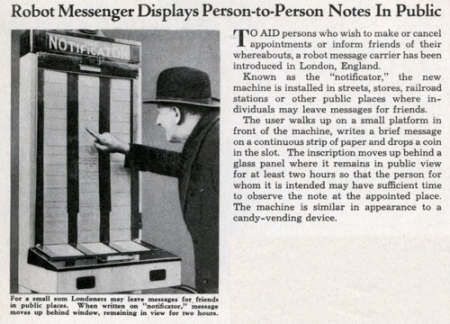November 22nd, 2009 by David Kroll, Ph.D. in Announcements, Better Health Network
No Comments »

No matter how early I wake up, it’s always five hours later in the UK and I’m overwhelmed by the thought that I’m already behind (I won’t even get into the feeling I have when I think of our Australian readers).
So when I start the day reading my Twitter stream, it’s usually populated by midday news from England. I follow the NHS – National Health Service – “one of the largest publicly funded health services in the world,” and their superb health information site, NHS Choices.
This morning I saw this tweet about the launch of their new sexual health site:
@NHSChoices Our new sexual health hub includes advice on contraception, good sex guides, sex & young people, STIs and much more http://bit.ly/3wtJwL Read more »
*This blog post was originally published at Terra Sigillata - PostRank (PostRank: All)*
September 30th, 2009 by Toni Brayer, M.D. in Better Health Network, Health Tips
No Comments »


I heard an interview with T.R.Reid and can’t wait to read his book The Healing of America: A Global Quest for Better, Cheaper, and Fairer Health Care. He traveled the world and compared how developed countries manage health care. He makes the point that all other developed countries have universal coverage. No-one is left out.
He found four basic systems (some named after their founders):
Read more »
*This blog post was originally published at EverythingHealth*
July 9th, 2009 by Berci in Better Health Network, News
1 Comment »


If you are a hospital, healthcare facility or parent system considering social media, please take the time to learn what is happening in the “Twittersphere”, and do pay attention to the evolving “agreements” of Twitter-etiquette.
*This blog post was originally published at ScienceRoll*
May 18th, 2009 by Jonathan Foulds, Ph.D. in Better Health Network
No Comments »

I’ve previously written about what face-to-face smoking cessation services typically do, largely based on my own experience. However, while at the SRNT annual conference I met two Smoking Cessation Advisors working in Lancashire, England who appeared to have a successful service, so thought it worth sharing some of their information.
Jan Holding and Eileen Ward manage a UK National Health Service (NHS) Stop Smoking Service in Lancashire in the north of England. Both are nurses by training and many of the 14 staff providing the treatment have primarily a nursing background. Their service sees around 450 new clients per month (i.e. over 5000 new clients per year). Services are provided at “community sessions” at various locations all over their catchment area, and clients are given their own hand-held record which they keep, and take with them to sessions, enabling them to attend whichever community location suits them at the time. While clients can make scheduled appointments, the service is also flexible, allowing clients to “drop-in” to community sessions without an appointment. Although some initial assessment sessions take place in a group format, most of the sessions are delivered in a one-to-one format via a relatively brief discussion with a smoking cessation advisor. These community sessions often take place in a large community room from 4pm to 8 pm in the evening, with multiple types of services being provided in the same room at the same time at different corners (e.g. initial assessments in one corner, prescribing of varenicline in another, and nicotine replacement therapy in another). It is not uncommon for around 200 clients to attend a single community session.
Clients are frequently encouraged to use NRT prior to quitting smoking (about half do this) and usually use more than one smoking cessation medicine (more than half do). Nicotine replacement therapy is provided via a voucher system requiring either no cost to the client, or just a co-pay (around $10 USD).
The service runs 6 days per week and includes evening sessions, and aims to reduce most of the usual barriers to entering treatment. Their “3 As” approach emphasizes “Accessibility, Availability and Adaptability”. They also specifically try to develop smoking cessation advisors who are passionate about their role, have a positive attitude to the importance of quitting smoking, and are therefore very committed to that work, as well as being knowledgeable about it.
My understanding is that the quit rates at this service are pretty good. But perhaps the best testimony to its success is the fantastic volume of clients who attend…..largely influenced by positive word-of-mouth via other clients. The success of this service reminds us that there isn’t just one way to do it, that all smoking cessation counselors and systems may need to be flexible and adaptable in order to help as many smokers to quit as possible.
For further information on what a smokers’ clinic does, see: What does a tobacco treatment clinic do?
This post, Smoking Cessation Programs: Lessons From The UK, was originally published on
Healthine.com by Jonathan Foulds, Ph.D..
















